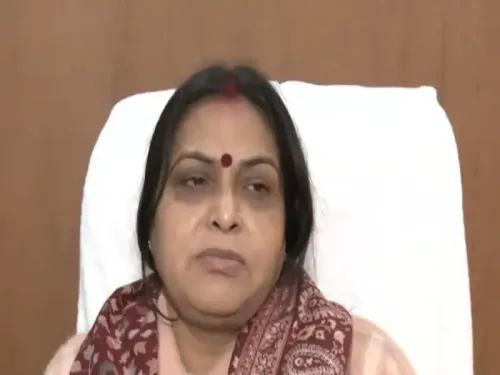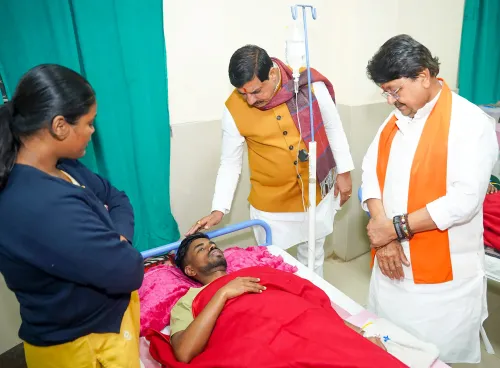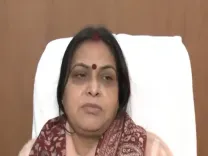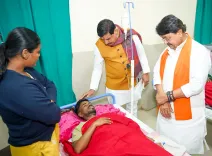Have Three Cops Been Remanded to Judicial Custody in Bengal's Post-Poll Violence Case?

Synopsis
Key Takeaways
- Three Kolkata Police officers have been remanded in custody for their involvement in a murder case.
- The case revolves around the murder of BJP worker Abhijit Sarkar.
- This incident occurred in the context of post-poll violence following the 2021 West Bengal Assembly elections.
- The CBI is now handling the investigation after initial inquiries by Kolkata Police.
- The total number of accused has increased to 38 due to new evidence.
Kolkata, July 18 (NationPress) A former and two current officers of the Kolkata Police have been ordered to remain in judicial custody until July 31 by a special court of the Central Bureau of Investigation (CBI) in Kolkata. This decision relates to the murder of BJP member, Abhijit Sarkar, during the post-election violence that erupted following the 2021 West Bengal Assembly elections.
Among those remanded is the retired assistant commissioner of Kolkata Police and the former officer in charge of Narkeldanga Police Station, Subhojit Sen.
Also in custody are the former lady sub-inspector of that station, Ratna Sarkar, and a home guard, Dipankar Debnath. Furthermore, a woman named Sujata Dey, identified by the CBI as a facilitator in the BJP worker's murder, has also been placed under judicial custody until July 31.
All four individuals were named in the supplementary charge sheet submitted by the CBI to the same special court in Kolkata earlier this month. While remanding them to police custody, the judge remarked that when a “protector” turns into a “killer”, the societal repercussions are profound.
Abhijit Sarkar, a BJP worker residing in the Kankurgachi locality of North Kolkata, was murdered amid the post-poll turmoil on May 2, 2021, shortly after the results of the 2021 West Bengal Assembly elections showed a sweeping victory for the Trinamool Congress.
On July 2 of this year, the CBI announced that a new supplementary charge sheet naming 18 additional accused parties was filed with the special court.
This addition brings the total number of accused individuals in the case to 38.
The initial investigation was conducted by the homicide squad of the Kolkata Police's detective department, which had initially named 15 accused in its charge sheet.
Following a directive from the Calcutta High Court, the CBI assumed responsibility for the investigation, officially registering the case in August 2021 and subsequently filing a supplementary charge sheet against 20 accused individuals, incorporating the 15 previously charged by the city police.










